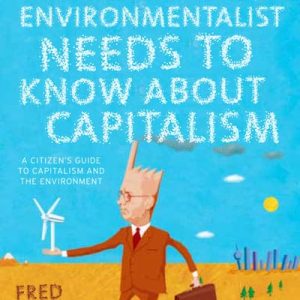From the Australian Journal of Environmental Education, Volume 28/1, 2012
What Every Environmentalist Needs to Know about Capitalism: A Citizen’s Guide to Capitalism and the Environment by Fred Magdoff and John Bellamy Foster
Reviewed by Kate Neale, Centre for Children and Young People, Southern Cross University, Australia
Authors Fred Magdoff, Professor Emeritus of Plant and Soil Science at the University of Vermont, and John Bellamy Foster, Professor of Sociology at the University of Oregon, make a powerful statement in their latest collaboration, What Every Environmentalist Needs to Know about Capitalism. The book was conceived after a huge response to their article of the same name, originally published in the Monthly Review March 2010 issue. The book opens with an unapologetic stance by its authors against capitalism. They unequivocally remark that any suggestion that ‘capitalism offers the solution to the environmental problem … (is) rooted in an absolute denial of reality’ (pp. 7-8). The tone for the book is quickly established through early calls for revolutionary action, as seen on page 8: ‘Put simply, it is essential to break with a system based on a single motive – the perpetual accumulation of capital … Such a break is a necessary, if not sufficient, condition for the creation of a new ecological civilisation’; and again on page 9: ‘(I)f humanity is going to survive this crisis, it will do so because it has exercised its capacity for human freedom, through social struggle, in order to create a whole new world – in coevolution with the planet.’
What Every Environmentalist Needs to Know about Capitalism is an important book on many levels. The authors’ ability to condense a large number of very complex environmental issues in a short and concise manner is commendable. Large-scale environmental issues provide context to the magnitude of the problem, while localised examples of devastation provide strong arguments for its impact, cause for concern and urgent need to respond. The obvious need to do something about the horrendous environmental impact of our consumption also begs the question why the title restricts the readership to environmentalists when it is obvious that every citizen needs to understand the seriousness of the ecological issues facing our planet. Perhaps instead its subtitle, A Citizen’s Guide to Capitalism and the Environment, is more apt….
Read the entire review in the Australian Journal of Environmental Education, Volume 28/1, 2012

Comments are closed.